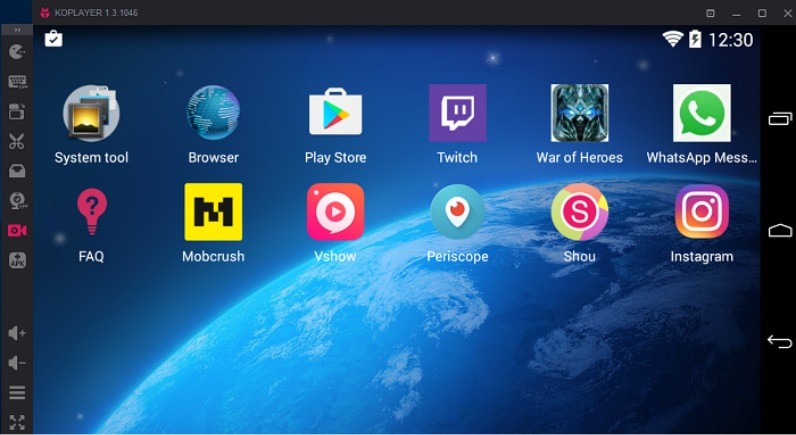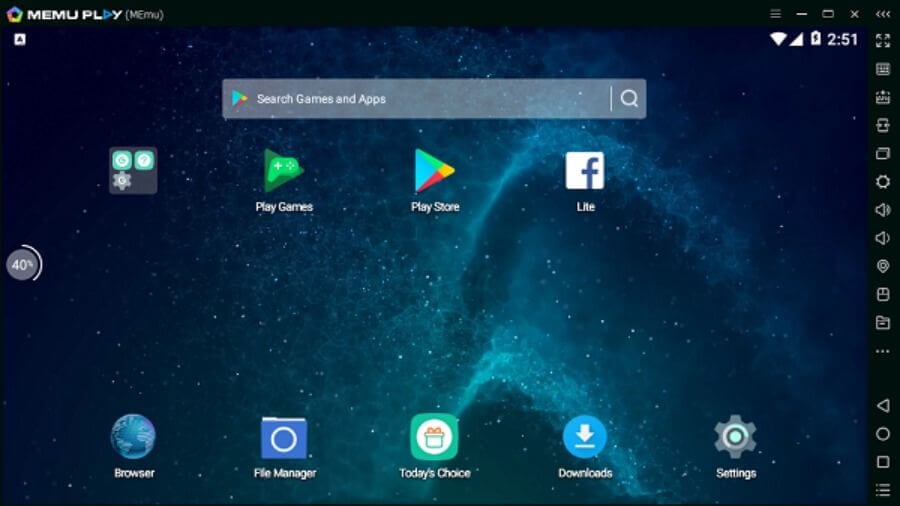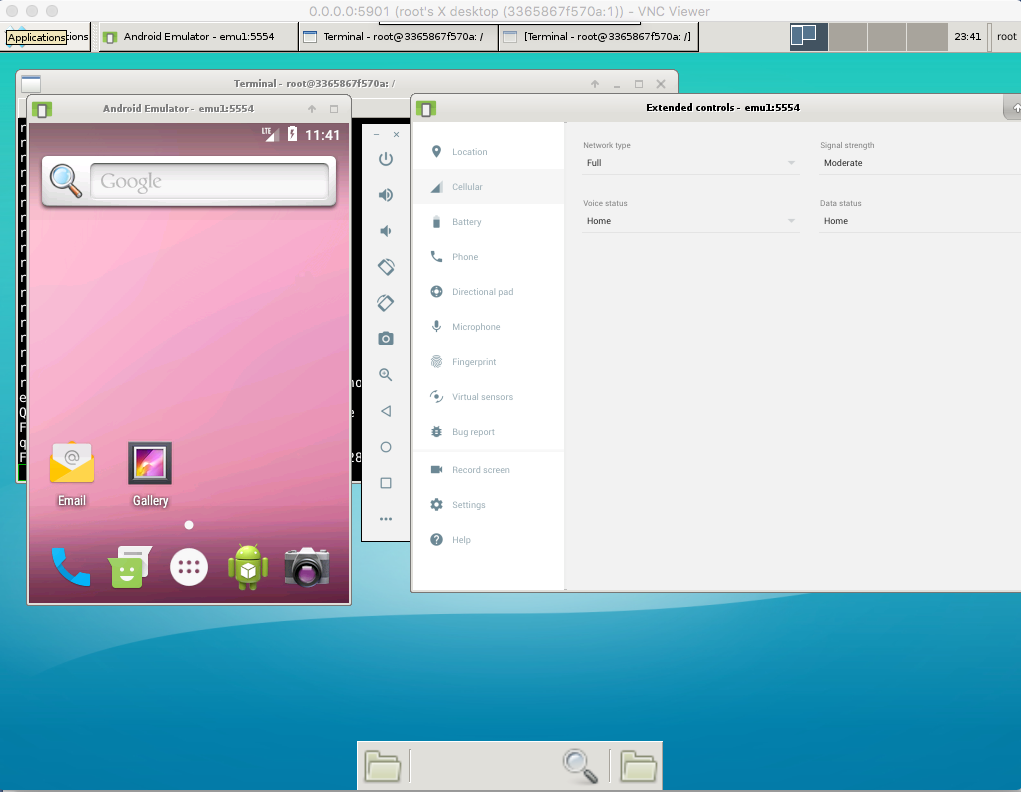Depending on your device, you may need to change the amount of RAM to use the VM. For macOS, you should allocate at least 50% of installed RAM for maximum performance. For iOS, you should use around 20% of the device RAM (any more and iOS will terminate UTM). To set the RAM size, open the VM settings and browse to System. In Virtual Machine Library, select your VM, then right-click (Control+click) to get the context menu, from that select 'Show in Finder'. This will open up Finder with your VM selected. If that VM is a VMBundle, then right click 'Show Package Contents' and there's a few vmware.log files down there. If the VM is a folder then open the folder. Interested in Android and want to try it out before actually buy a device that runs it, then the programs below are exactly what you are looking for. ByteCodeViewer Android APK Reverse Engineering Suite (Decompiler, Editor, Debugger) Mobile Security Framework (MobSF) (Android/iOS) Automated Pentesting Framework (Just Static Analysis in this VM) Drozer Security Assessment Framework for Android Applications. APKtool Reverse Engineering Android Apks. AndroidStudio IDE For Android Application. Yes, you can run macOS Monterey in a VM on Mac with Intel and Apple M1 Chip. One of the first things I do when an OS that I am interested in releases a new beta version is to install it in a virtual machine (VM) in Parallels® Desktop for Mac. By definition, beta releases are unfinished operating systems, and they can contain significant bugs.
To install and experience the Android x86 on PC you nee two things VirtualBox or Vmware software and Android x86 ISO image or Android x86 VM image.
Android, the most popular operating system, now not only just limited to your smartphones. If you have the curiosity to use it on your personal computer (PC) then you can do it. Now, the users those have a spare machine to test the Android operating system on PC can use the Android ISO image. You just need to make a bootable USB drive using the downloaded ISO images of Android 7.0, 8.0, 9.0 or whatever the version you want. However, if you don’t have the extra system to test the Android then another option which available is Virtualization. The most popular Virtualization software are VirtualBox and Vmware. The VirtualBox is an open source tool and available for Linux, Windows, and Mac. While the other one Vmware is also available for the OS mentioned but it is proprietary software.
You can either use the Android ISO image to install the Android OS on VirtualBox / VMware or simply download the pre-configured Android x86 Virtual machine image (VM). The benefit of using Virtual Image is, you don’t need to configure storage, Ram, other hardware configuration for the OS on Virtualization software. Just download the Android VM image and it simply boots as a preinstalled machine. It saves a lot of time.
Prerequisites to install Android x86
To install and experience the Android on PC you nee two things VirtualBox or Vmware software and Android x86 ISO image or Android x86 VM image. Here in this tutorial, we are going to use the VirtualBox and to save time and make it easy to install the Android on PC, the Android x86 VM image.
Here are the Links to download the above-mentioned prerequisites software.
VirtualBox: Link
Android X86 VM image: Link( VM image available while writing the article are: Android-x86 8.1-RC2 Oreo, Nougat, Marshmallow (R3), 5.1 (RC1), Android x86 4.4 r1 and more)
Android x86 ISO image: Link(For those don’t want to use the Andriod VM image)
Install Android OS on VirtualBox and VMware
Note: It doesn’t matter which operating system you are using it could be Linux, Windows or Mac because the process of working with Virtual or Vmware is the same for all of them. While writing article Android OReo was the latest build.
Step 1: Download VirtualBox or VMware player
First of all, download and install the VirtualBox on your PC machine ( Linux, Windows or Mac).
Step 2: Get Android Oreo OS VM image
After the installation of the Virtualbox, you need to download the VM image from the link given above given in this article. On the website, you will find two images one is for VirtualBox and other is meant for Vmware. According to your software select that. As we are using the VirtualBox, so we downloaded the VirtualBox image. While writing this the article the latest Android VM image available on the website was Android-x86 8.1-RC1 Oreo.
Step 3: Extract Android X86 VM image file
The downloaded the Android X86 VM image file will be in a 7z archive format. After downloading you need to extract the Android VM image from using the normal Winrar or 7zip or any other archive/ compression software.
Step 4: Run the VirtualBox.
- Click on the NEW button from the VirtualBox menu.
- Give some name to your Android virtual machine, like we have given Android test H2s.
- From Type’s drop-down select the Other and Version = other/unknown.
- Select the size of memory you want to provide your operating system. We have assigned 2GB for fluid functions.
- From the Hard disk section, select the option- Use an existing virtual hard disk file.
- Click on the Folder icon.
Step 5: Select the extracted Android X86 VDI image which you downloaded above.
Step 6: Click on the Create button.
Step 7: Select the created Android x86 Virtual machine from the left panel of VirtualBox.
Step 8: Now Click on the START button given on the VirtualBox menu.
Step 9: The Android Virtual Machine will start.
Step 10: Select the normal mode- Android X86 8.1-rc1

Step 11: Android x86 is installed

Android Vm Mac Address
The OS has been installed and it will boot to provide you with a familiar screen like your smartphone.
We tried to install the PUBG on the Android x86 Virtual Machine on Linux PC and it worked…
Other Useful Resources:

VMware Horizon Clients
Horizon Client for Mac Logs Log files can help troubleshoot issues with installation, display protocol, and various feature components. You can create a configuration file to configure the verbosity level.
VMware Horizon Clients for Windows, Mac, iOS, Linux, and Android allow you to connect to your VMware Horizon virtual desktop from your device of choice giving you on-the-go access from any location.
Click here for a list of certified thin clients, zero clients, and other partner solutions for VMware Horizon.
| Product | Release Date | ||||||||||
|---|---|---|---|---|---|---|---|---|---|---|---|
| VMware Horizon Client for Windows | |||||||||||
| |||||||||||
| VMware Horizon Client for Windows 10 UWP | |||||||||||
| |||||||||||
| VMware Horizon Client for Mac | |||||||||||
| |||||||||||
| VMware Horizon Client for Linux | |||||||||||
| |||||||||||
| VMware Horizon Client for iOS | |||||||||||
| |||||||||||
| VMware Horizon Client for Android | |||||||||||
| |||||||||||
| VMware Horizon Client for Chrome | |||||||||||
| |||||||||||
Mac Os Virtual Machine Download
Vmware Horizon Client For Mac
| Driver / Tool | Release Date | ||
|---|---|---|---|
There are no drivers or tools available for this product. | |||
| Custom ISOs | Release Date | ||
|---|---|---|---|
There are no custom ISOs available for this product. | |||
Vmware View Client For Mac
Active Client For Mac
Android Virtual Machine
Torrent Client For Mac

| Product | Release Date | ||||||||||||||||||||||||||||||
|---|---|---|---|---|---|---|---|---|---|---|---|---|---|---|---|---|---|---|---|---|---|---|---|---|---|---|---|---|---|---|---|
| VMware Horizon Client Open Source | |||||||||||||||||||||||||||||||
| |||||||||||||||||||||||||||||||